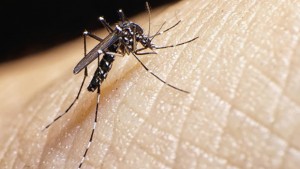 The Centers for Disease Control and Prevention confirmed over the past week a dozen cases of Zika virus in travelers returning to the United States. Recent cases were identified in the U.S. territory of Puerto Rico. “This is a very new disease and are still learning a lot about this in a very short time,” Dr. Albert Icksang Ko, Yale School of Public Health, told Medical Daily.
The Centers for Disease Control and Prevention confirmed over the past week a dozen cases of Zika virus in travelers returning to the United States. Recent cases were identified in the U.S. territory of Puerto Rico. “This is a very new disease and are still learning a lot about this in a very short time,” Dr. Albert Icksang Ko, Yale School of Public Health, told Medical Daily.
Zika is spreading rapidly, according to Ko. Reasons include high infestation levels in some regions and a great deal of interconnection and movement between affected countries. Since many people do not experience symptoms, people will travel while infected.
“The research community is coming up with a good diagnostic test,” Ko said. Not only would such an test identify infected patients, it would also assist scientists monitoring the spread of virus throughout the world.
Zika virus is carried by mosquitoes and causes an acute infection. An infection with Zika virus causes fever, headache, conjunctivitis (pink eye), and rash, along with joint and muscle pain. Only one out of every four infected people develop symptoms. “Most people who are infected don’t know they are infected,” Ko said, adding the illness is acute with symptoms usually quite mild, lasting just three to five days.
Recent studies found when pregnant women are infected; the virus may be transmitted to the placenta and in turn to the fetus causing microcephaly, a condition where a baby is born with an abnormally small head and incomplete brain development. “What is not known is how many women transmit this to the unborn babies. said Ko, adding, “The risk is real, but it is not known how much of a risk it is,” scientists
are currently working to get this research completed.
The World Health Organization reports the virus was first isolated in 1947 in the Zika forest in Uganda, and since then, it has remained mainly in Africa with sporadic outbreaks in Asia. In 2007, the island of Yap, in Micronesia, reported a major epidemic, when nearly 75 percent of its population became infected. Recently, the virus spread to this region of the globe.
There are no specific drugs for treating this virus, so most patients simply drink plenty of water and get lots of rest. Treatment consists of relieving pain, fever, or any other symptom.
To prevent Zika, health officials recommend avoiding mosquito bites by using nets and repellents for the skin, as well as nutritional strategies that preserve the integrity of the skin. Mosquitoes that spread Zika virus bite mostly during the daytime. Building your immune system, experts say, can also reduce theseverity of symptoms by helping prevent the virus from taking over the body, if a person becomes exposed.

